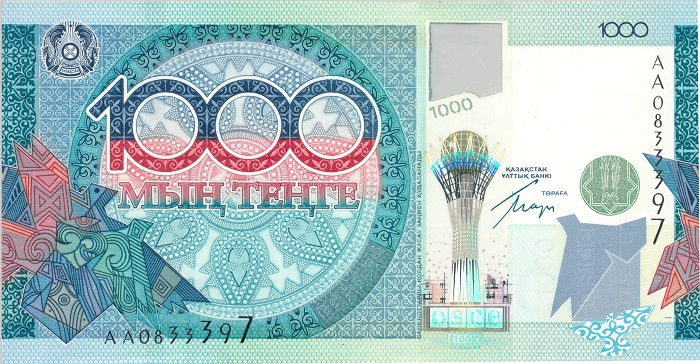Kazakh Tenge Slumps to Record Low Following Oil Price

“The tenge is in free float and the worsening external economic conditions lead to increased demand for dollars from businesses and the population,” said Damir Seisebayev, head of research at Private Asset Management in Almaty. “In the near term, oil will probably continue to fall and that will affect the tenge.”
Kazakhstan has stepped up measures to limit currency speculation from Dec. 15 as the government braces for further declines in oil and assesses its plans if the price drops to $30 a barrel from a projected $40 for 2016. Crude, which fell to its lowest since 2008 last week, accounts for more than 50 percent of the country’s budget revenue, according to Standard & Poors.
Kazakhstan, the largest oil producer among former Soviet republics after Russia, shifted to a floating exchange rate in August as tumbling crude prices and devaluations by Russia and China boosted the cost of defending the currency. The central bank said last month it would protect foreign currency reserves by cutting the amount of dollars its sells to support the tenge.
The currency has been “de-facto” pegged to 307-308 tenge per dollar since Akishev’s appointment on Nov. 2, Tatiana Orlova, a senior economist at Royal Bank of Scotland Group Plc in London, wrote in a report on Dec. 7. Kazakhstan may repeg the currency if Brent crude drops to $30 or below and an adjustment to 340-350 “would be likely,” she said.
Brent for January settlement traded down as much as 49 cents, or 1.3 percent, at $37.44 a barrel on the London-based ICE Futures Europe exchange on Monday.















































